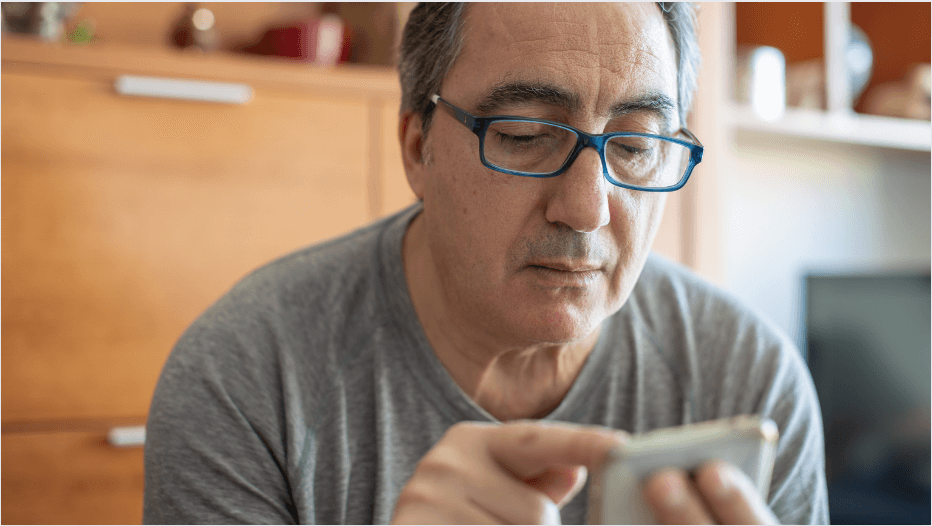TL;DR While there’s a wealth of valuable and ethical mental health content on social media platforms, it’s also true that unethical content exists. Consumers of mental health content should be discerning and critical in evaluating the credibility and trustworthiness of the information they encounter online.
It’s true that social media has the potential to be a powerful tool for promoting mental health awareness and support but there is still a need for ongoing conversation, advocacy, and collaboration to promote ethical standards, combat misinformation, and ensure that individuals have access to accurate, supportive, and trustworthy information about mental health online.
There are dangerous but easily accessible mental health content online that can negatively impact individuals’ well-being. Exposure to this can lead to harmful effects, such as increasing feelings of shame, isolation, and self-doubt.
Today, I want to focus on how you can vet mental health content that you come across social media or online.
What is Ethical Mental Health Content?
Ethical mental health content refers to online material, such as articles, videos, posts, or podcasts, that adhere to ethical principles and guidelines while addressing mental health topics. This type of content is created with the intention of promoting mental wellness, providing accurate information, reducing stigma, and offering support to individuals navigating mental health challenges.
Mental health content can be deemed ethical when it adheres to principles of accuracy, transparency, respect, and integrity.
How do I Vet Mental Health Content I Come Across?
Vetting mental health content can be tricky for many people. With so much information online, it’s hard to know what’s trustworthy, especially if you’re not an expert. Social media can be particularly confusing because there aren’t always clear rules, and content that looks good might not be accurate.
To help you, use this checklist of questions to ask when you see mental health content online. These questions help you check if the information is reliable and if the creator knows what they’re talking about. And if you’re ever unsure, it’s always a good idea to talk to a mental health professional for guidance.
- Is this content backed by scientific evidence and reliable sources? This question ensures that the information provided is accurate and trustworthy, helping to avoid misinformation.
- Does the creator clearly explain their qualifications and limitations? Understanding the creator's background helps assess their expertise and credibility in discussing mental health topics.
- Does the content avoid sharing personal details about individuals, even if they're anonymized? Respecting individuals' privacy and confidentiality is crucial to maintain ethical standards and trust.
- Does the creator maintain a clear separation between their online presence and professional practice? Maintaining boundaries helps prevent potential conflicts of interest and ensures that content remains informative rather than promotional.
- Does the content refrain from giving personalized advice or therapy? Personalized advice should only be provided in a therapeutic setting where confidentiality and ethical guidelines can be upheld.
- Does the content consider how it might affect people with mental health issues? Considering the potential impact on vulnerable audiences helps prevent content that may be triggering or harmful.
- Does the content avoid anything that could be upsetting or harmful to those with mental health conditions? Content should prioritize promoting positivity and well-being, avoiding language or imagery that may exacerbate mental health issues.
- Does the creator seem open to learning and adapting their approach? Being open to learning and adapting demonstrates a commitment to improving the quality and ethical standards of content.
- Does the creator welcome feedback and suggestions for improvement? Welcoming feedback fosters a collaborative and constructive environment, encouraging ongoing improvement and accountability.
Don’t be afraid to ask these questions. They encourages content creators to uphold ethical standards and transparency, contributing to a safer and more supportive online environment for discussions about mental health.
A Final Reminder: Not All Ethical Mental Health Content Are Safe
While ethical mental health content is generally more trustworthy and reliable, it’s important to recognize that not all content labeled as ethical may be completely safe for everyone. Safety can depend on various factors, including the individual’s own vulnerabilities, triggers, and specific needs.
While ethical content creators strive to promote positivity, empowerment, and well-being, there is still a possibility that certain topics or discussions within ethical content could be triggering or upsetting for some individuals. Therefore, while ethical mental health content provides a more reliable foundation, individuals should still exercise caution and prioritize their own well-being when engaging with any online content. If something feels distressing or uncomfortable, it’s okay to disengage and seek support from trusted sources or mental health professionals.
Make More Informed Decisions
Make more informed decisions about which content to trust and engage with, ultimately promoting your mental well-being and avoiding potential harm from misinformation or unethical practices.
Feeling overwhelmed or distressed by something you’ve seen online? Whether it’s a troubling post or just a difficult day, don’t hesitate to reach out for a free consultation. Contact me, my inbox is always open, and I’m here to listen.

